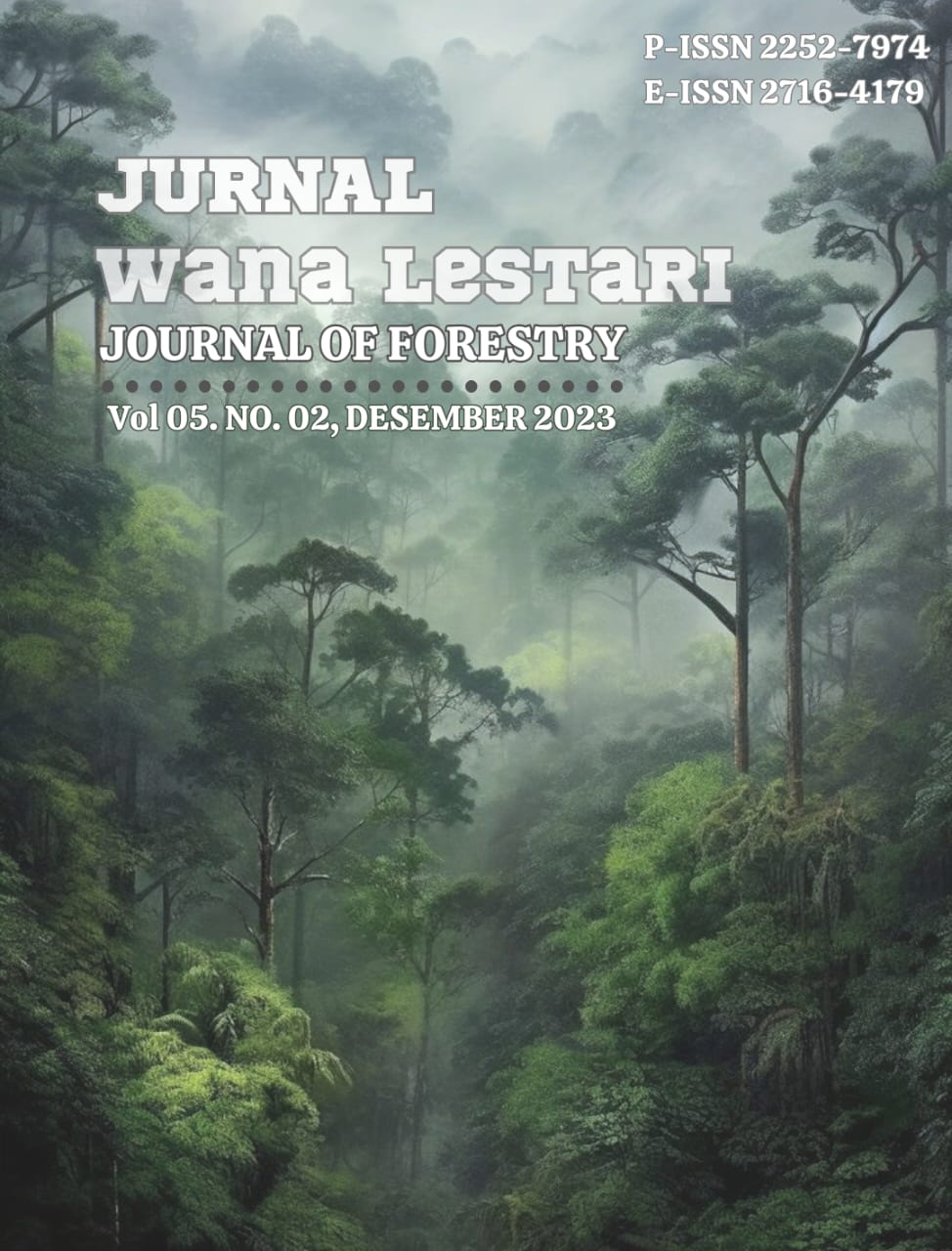Karakteristik Pohon Inang dan Keanekaragaman Anggrek (Orchidaceae) Epifit di Hutan Lindung Lununianam, Desa Fatu’ulan, Kecamatan Ki’e, Kabupaten Timor Tengah Selatan, Provinsi Nusa Tenggara Timur
Abstract
This study was conducted to determine the characteristics of orchid host trees, the diversity of epiphytic orchids (Orchidaceae), and the preservation of host trees and epiphytic orchids in the Lununianam protected forest area. This research was conducted in Lununianam Protection Forest, Fatu'ulan Village, Ki'e District, South Central Timor Regency, East Nusa Tenggara Province. Which is carried out for 1 month, from November to December 2022. This study used purposive sampling methods, surveys, and cruising paths with data analysis using qualitative descriptive and quantitative descriptive analysis. Host tree data was processed using vegetation analysis formulas and orchid data was processed using the Shannon wiener (H') diversity index formula. The results showed that there were 5 species of host trees found in the study site, namely forest guava (Syzygium pycnanthum), Matani (Pterocarpus indicus), Tahi (Celtis wightii planch), Kamala (Mallotus philippensis), Jenitri (Elaeocarpus ganitrid). Host trees found in Lununianam Protection forest have the characteristics of large hard and rough bark, have a height range of 12-30 m, and bark overgrown with moss, The results of vegetation analysis of host tree species with the highest Important Value Index namely Syzygium Pycnanthum and Elaeocarpus ganitrus have the lowest Important Value Index. Orchids found in the sampling plot in the Lununianam Protection Forest contained 8 species of epiphytic orchids, namely Dendrobium Sp, Vanda insignis, Eria multiflora, Flickingeria grandiflora, Trichoglottis bipenicillata, Pholidota carnea, Appendicula reflexa Blume, and Ceologyne speciosa. The calculation of Shannon Wiener's diversity index of 1.57 (H') is classified as medium (1<H'<3). The most common type of orchid found is the type Eria multifora with a total of 168 individuals and the type that is less commonly found is Appendicula reflexa Blume with 4 individuals.

 Karmila Abe(1*)
Karmila Abe(1*)







